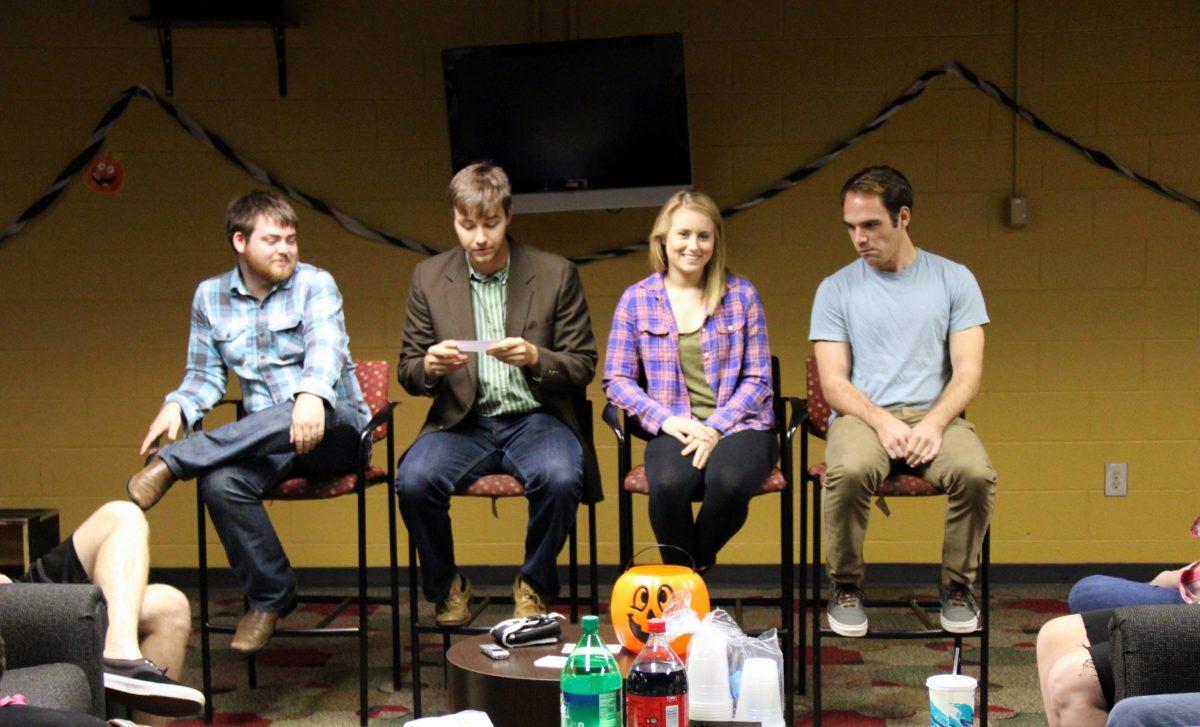STUDENT PANEL DISCUSSES HOW CHRISTIANITY AND HOMOSEXUALITY COME TOGETHER—
On Tuesday Oct. 28, Canterbury and Spectrum crossed paths in a panel discussing Christianity and homosexuality. Canterbury is an Episcopal student ministry on campus, and Spectrum is a group that attempts to welcome and support students of all sexualities and gender identities. The panelists consisted of representatives from both organizations with varying orientations, religious beliefs and experiences.
“I identify as a gay male who also identifies as a Christian,” says William Wilkins, class of 2014 graduate. Wilkins describes how he would listen to church sermons attentively during his youth, even when other kids were talking. When he realized that he was gay, he struggled with the possibility of coming out.
“It was then that I reached my lowest that God spoke the loudest,” says Wilkins. “My god, who I believe in, and always have.”
“I allowed myself to say, hey, I’m gay. I’ve tried changing, but the more I pretend to be something I’m not, the more I’m not allowing myself to potentially be a light for other people. And the more I hold myself back, the more I can’t grow,” says Wilkins.
He describes an encounter with a woman in a store, who insisted that he couldn’t be both Christian and gay. Among accusations of arrogance and ignorance, she told him that he should prepare himself for hell.
Graduate Jack Wisham identifies as a gay man who grew up in a Southern Baptist household. Wisham reflects on his freshman year at Wofford, where he was asked to stand outside of a fraternity house during the rush process because he was not welcome inside. Now, Jack works as a church youth minister.
“What Christianity is really about is love,” says Wisham, “and the power of God’s love through that.”
“This part of the country where we are located has been behind the curve on every important social issue of the last 160 years,” says Dr. Byron McCane, head of the religion department.
Matthew Yochum, a religion and philosophy major, attempts to consolidate Christian faith and diverse sexualities through the Bible itself.
“My personal belief and my interpretation of how [diverse sexuality] plays into our faith life comes from Acts. There is a eunuch who is walking along the road, and that eunuch is brought to Christ without any problems with who he is. God picks up his apostle and takes him specifically to this person. If that’s not God accepting all people, then I don’t know what is,” says Yochum.
McCane argues that the most relevant piece of Biblical text in regards to homosexuality is Romans 1.
“That’s the only place the issue comes up in a highly visible theological framework,” says McCane.
According to McCane, the scholarly discussion of that passage ended nearly 30 years ago.
“Romans 1 teaches that lesbian, gay, transgender and queer people are no less good or bad than anyone else. Romans 1 is an indictment against all human beings, everywhere for all time. All have sinned and come short in the glory of God, and Paul is trying to establish that everybody needs a savior,” says McCane.
According to Yochum, the head of the Canterbury program at Clemson is an openly gay priest, John Bethell. Bethell has said that people who claim to love the sinner but hate the sin tend to get these concepts jumbled, causing them to act in hatred regardless of what they say.
“I wasn’t only closeted in terms of being gay but closeted in terms of being myself completely. When you’re not allowing yourself to be yourself, it’s one of the most depressing feelings,” says Wilkins.
In regards to his own story, Wisham says: “I guess we’ll see what happens next.”
































